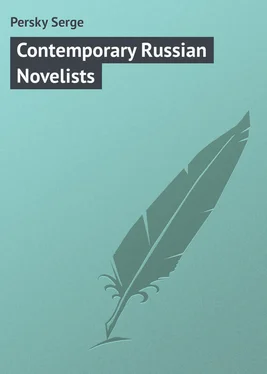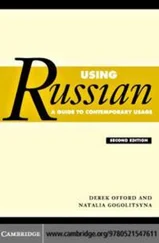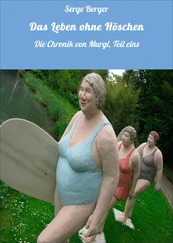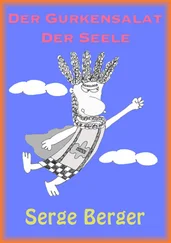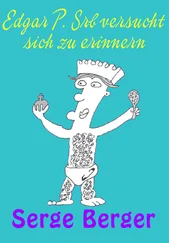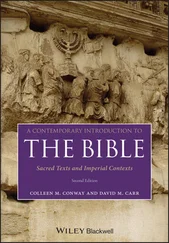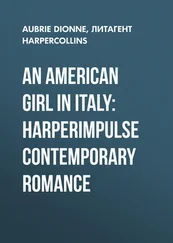Serge Persky - Contemporary Russian Novelists
Здесь есть возможность читать онлайн «Serge Persky - Contemporary Russian Novelists» — ознакомительный отрывок электронной книги совершенно бесплатно, а после прочтения отрывка купить полную версию. В некоторых случаях можно слушать аудио, скачать через торрент в формате fb2 и присутствует краткое содержание. Жанр: Русская классическая проза, на английском языке. Описание произведения, (предисловие) а так же отзывы посетителей доступны на портале библиотеки ЛибКат.
- Название:Contemporary Russian Novelists
- Автор:
- Жанр:
- Год:неизвестен
- ISBN:нет данных
- Рейтинг книги:3 / 5. Голосов: 1
-
Избранное:Добавить в избранное
- Отзывы:
-
Ваша оценка:
- 60
- 1
- 2
- 3
- 4
- 5
Contemporary Russian Novelists: краткое содержание, описание и аннотация
Предлагаем к чтению аннотацию, описание, краткое содержание или предисловие (зависит от того, что написал сам автор книги «Contemporary Russian Novelists»). Если вы не нашли необходимую информацию о книге — напишите в комментариях, мы постараемся отыскать её.
Contemporary Russian Novelists — читать онлайн ознакомительный отрывок
Ниже представлен текст книги, разбитый по страницам. Система сохранения места последней прочитанной страницы, позволяет с удобством читать онлайн бесплатно книгу «Contemporary Russian Novelists», без необходимости каждый раз заново искать на чём Вы остановились. Поставьте закладку, и сможете в любой момент перейти на страницу, на которой закончили чтение.
Интервал:
Закладка:
The spirit of the literature of a nation is usually a reflection of the social class which possesses the preponderant influence from a political or economic standpoint or which is marked by the strength of its numbers. The preponderance of the upper middle class in England has impressed on all the literature of that country the seal of morality belonging to that class; while in France, where aristocracy predominated, one still feels the influence of the aristocratic traditions which are so brilliantly manifested in the pseudo-classic period of its literature. But many reasons have hindered the aristocracy and the bourgeoisie from developing in Russia. The Russian bourgeois was, for a long time, nothing but a peasant who had grown rich, while the noble was distinguished more by the number of his serfs and his authority than by his moral superiority. Deprived of independence, these two classes blended and still blend with the immense number of peasants who surround them on all sides and submerge them irresistibly, however they may wish to free themselves.
Very naturally, the first Russian authors came from the class of proprietors, rural lords, who were the most intelligent, not to say the only intelligent people. In general, the life of the lord was barely distinguishable from that of the peasant. As he was usually reared in the country, he passed his childhood among the village children; the people most dear to his heart, often more dear to him than his father or mother, were his nurse and the other servants, – simple people, who took care of him and gave him the pleasures of his youthful existence. Before he entered the local government school, he had been impregnated with goodness and popular poetry, drawn from stories, legends, and tales to which he had been an ardent listener. We find the great Pushkin dedicating his most pathetic verses to his old nurse, and we often see him inspired by the most humble people. In this way, to the theoretic democracy imported from Europe is united, in the case of the Russian author, a treasure of ardent personal recollections; democracy is not for him an abstract love of the people, but a real affection, a tenderness made up of lasting reminiscences which he feels deeply.
This then was the mental state of the most intelligent part of this Russian nobility, which showed itself a pioneer of the ideas of progress in literature and life. There were even singular political manifestations produced. Rostopchin said: "In France the shoemakers want to become noble; while here, the nobles would like to turn shoemakers." But, in spite of all, the greater part of this caste, with its essential conservative instincts, was nothing more than an inert mass, without initiative, and incapable even of defending its own interests except by the aid of the government.
Rostopchin did not suspect the profound truth of his capricious saying.
This truth burst forth in all its strength about 1870, the time of the great reforms undertaken by Alexander II, when the interests of the people were, for the first time, the order of the day. It was at this period that a great deal of studying was being done with great enthusiasm and that a general infatuation for folklore and for a "union with the masses" was being shown. The desire to become "simplified," that is to say to have all people live the same kind of life, the appearance of a type, celebrated under the sarcastic name of "noble penitent" (meaning the titled man who is ashamed of his privileged position as if it were a humiliating and infamous thing), the politico-socialistic ideology of the first Slavophiles, still half conservative, but wholly democratic; all these things were the results of the manifestations which astonished Rostopchin and made the more intelligent class of Russians fraternize more with the masses. In our day, this tendency has been eloquently illustrated by the greatest Russian artist and thinker, Tolstoy, who was the very incarnation of the ideas named above, and who always appears to us as a highly cultured peasant. The hero of "Resurrection" sums up in a few words this sympathy for the people: "This is it, the big world, the true world!" he says, on seeing the crowd of peasants and workingmen packed into a third-class compartment.
In the last half of the 19th century, Russian literature took a further step in the way of democracy. It passed from the hands of the nobility into the hands of the middle class, as the conditions under which it existed brought it closer to the people and made it therefore more accessible to their aspirations. It is no longer the great humanitarians of the privileged class who paint the miserable conditions among which people vegetate; it is the people themselves who are beginning to speak of their miseries and of their hopes for a better life. The result is a deep penetration of the popular mind, in conjunction with an acute, and sometimes sickly, nervousness, which is shown in the works of the great Uspensky, and, more recently still, in Tchekoff, Andreyev, and many others.
None of these writers belong to the aristocracy, and two of them – Tchekoff and Gorky – have come up from the masses: the former was the son of a serf, and the latter the son of a workingman. Let me add that, among the women of letters, the one who is most distinguished by her talent in describing scenes from popular life – Mme. Dmitrieva – is the daughter of a peasant woman.
Thus, as we have shown, the Russian writers alone, under the cover of imaginative works which became expressive symbols, could undertake a truly efficacious struggle against tyranny and arbitrariness. They found themselves in that way placed in a peculiar social position with corresponding duties. Men expected from them, naturally, a new gospel and also a plan of conduct necessary in order to escape from the circle of oppression. The best of the Russian writers have undertaken a difficult and perilous task; they have become the guides, and, so to speak, the "masters" of life. This tendency constitutes a new trait in Russian literature, one of its most characteristic; not that other literatures have neglected it, but no other literature in the world has proclaimed this mission with such a degree of energy and with such a spirit of sacrifice. Never, in any other country, have novelists or poets felt with such intensity the burden on their souls. At this point Gogol, first of all, became the victim of this state of things.
The enthusiasm stirred up by his works and by the immense hopes that he had evoked suddenly elevated him to such a height in the minds of his contemporaries that he felt real anguish. Artist he was, and now he forced himself to become a moralist; he rushed into philosophical speculations which led him on to a nebulous mysticism, from which his talent suffered severely. When he realized what had happened, despair seized him, his ideas troubled him, and he died in terrible intellectual distress.
We see also the great admirer of Gogol – Dostoyevsky – under different pretexts making known in almost all his novels and especially in his magazine articles, "Recollections of an Author," his opinions on the reforms about to be realized. He studies the problems of civilization which concern humanity in general, and particularly insists upon the mission of the Russian people, who are destined, he believes, to end all the conflicts of the world by virtue of a system based upon Christian love and pity.
Turgenev, himself, although above all an artist, does not remain aloof from this educational work. In his "Annals of a Sportsman," he attacks bondage. And when it was abolished, and when in the very heart of Russian society, among the younger generation, the revolutionists appeared, Turgenev attempted to paint these "new men." Thus in his novel, "Fathers and Sons," he sketches in bold strokes the character of the nihilist Bazarov. This celebrated type cannot, however, be considered a true representative of the mentality of the "new men," for it gave only a few aspects of their character, which, besides, did not have Turgenev's sympathy.
Читать дальшеИнтервал:
Закладка:
Похожие книги на «Contemporary Russian Novelists»
Представляем Вашему вниманию похожие книги на «Contemporary Russian Novelists» списком для выбора. Мы отобрали схожую по названию и смыслу литературу в надежде предоставить читателям больше вариантов отыскать новые, интересные, ещё непрочитанные произведения.
Обсуждение, отзывы о книге «Contemporary Russian Novelists» и просто собственные мнения читателей. Оставьте ваши комментарии, напишите, что Вы думаете о произведении, его смысле или главных героях. Укажите что конкретно понравилось, а что нет, и почему Вы так считаете.
